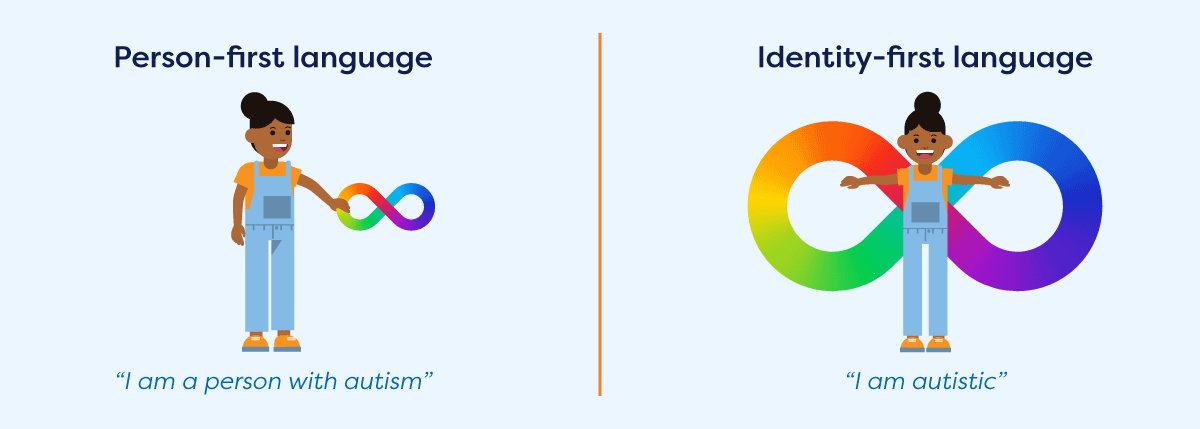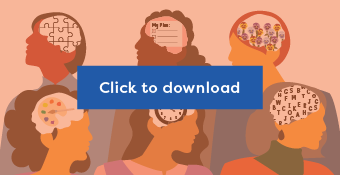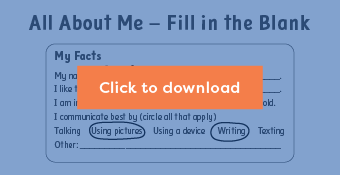April Newsletter | Autism Acceptance and Advocacy

Autism Acceptance and Advocacy
This April, we're celebrating Autism Acceptance Month by continuing the conversation around language and advocacy for individuals who identify as autistic. Having evolved significantly from the first National Autistic Children's Week in 1972, Autism Acceptance Month gives us an opportunity to reflect on current best practices that celebrate and honor the experiences of people with autism in our communities.
As celebratory and educational social media posts and fundraising efforts start to gather momentum, it's worth taking a moment to frame the actions you take this month in terms that are well-informed and deliberate. Being thoughtful about language, prioritizing acceptance, and encouraging self-advocacy are great ways to celebrate!
Thoughtful Vocabulary
The language we use to describe ourselves and others can be extremely powerful. The words we use have the potential to shape how we think of others and how others think of us. While there is no single correct vocabulary surrounding autism, two common philosophies tend to be most prevalent:
- Person-first language. Person-first language stems from the idea that we are all people first and foremost, regardless of disability or other aspects of our identity. Common phrases that align with this philosophy include “I am a person with autism” or “I am a person who has autism.” The key here is that autism is secondary to the person.
- Identity-first language. Identity-first language embodies the idea that autism and disability are integral to a person’s very identity; it suggests we cannot separate disability from self. Common phrases that align with this philosophy include “I am autistic” or “I am an autistic person.”

It is important to respect and acknowledge a person's preferred vocabulary because no two people identify the exact same way. Consider these questions as you're practicing thoughtful approaches to individual interactions:
- How does this person identify? What language do they use to describe themselves?
- Have I asked what this person prefers? Do they have a preference?
- If I were in their shoes, what would I prefer? Does that align with their preferences?
Autism acceptance and autism awareness have different implications. Since 2011 and 2021, respectively, the Autistic Self Advocacy Network and the Autism Society of America have advocated for autism acceptance, saying, “Acceptance of autism as a natural condition in the human experience is necessary for real dialogue to occur.” Autism Acceptance Month advocates for a more inclusive approach to the autism community. The goal is for more than education and awareness—we aim for understanding, respect, and celebration of the neurodiverse people in our communities worldwide. To help introduce the topic of Autism Acceptance Month to students, check out our “Autism Acceptance Month” discussion story! This is a great way to encourage student conversation about celebrating and understanding people’s differences.
Self-advocacy begins with reflection and mindfulness. Explore what makes each student unique with this “All About Me" activity. Depending on your students’ learning needs, choose between a picture-based or written worksheet. This activity is a great way to get students thinking about strengths, differences, and individuality. Share completed worksheets with parents and caregivers to keep the conversation going at home. Understanding and communicating about one's identity, strengths, and preferences can open the door to meaningful exchanges around disability, awareness of self and others, and celebrating and promoting the autistic community. Check out the Autism Self Advocacy Network's digital book on Autism Acceptance for more ways to celebrate and advocate!


